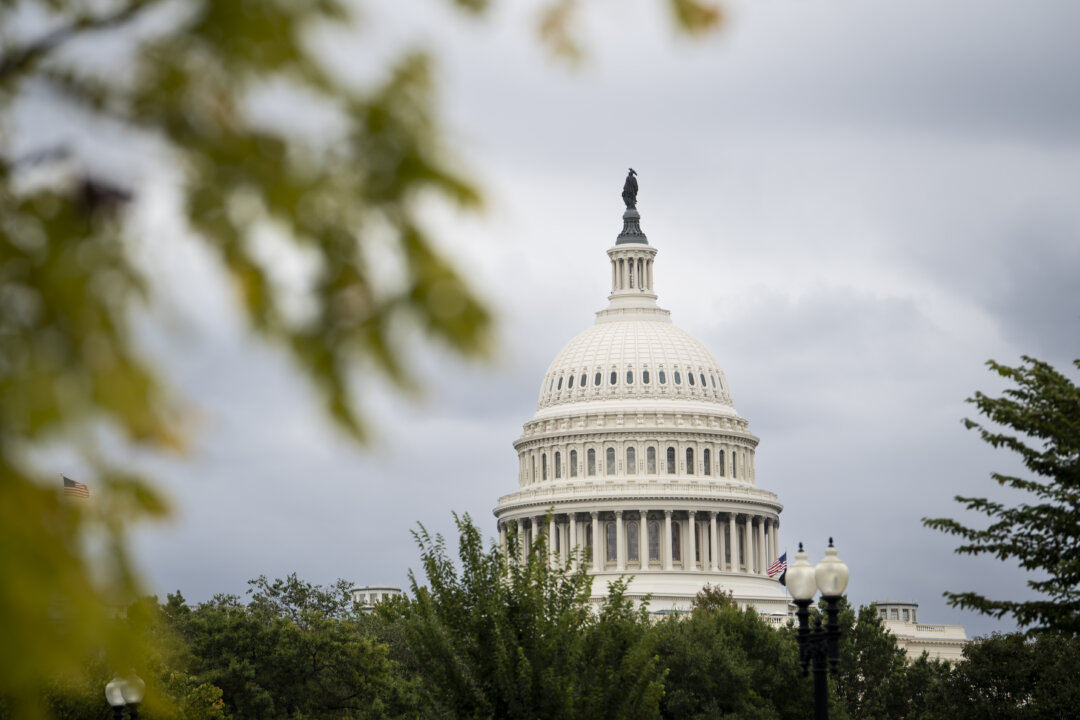The bill’s passage follows two apparent assassination attempts on former President Donald Trump. It is unclear if a Senate version will advance.
WASHINGTON—The House unanimously passed a bill on Sept. 20 to give former President Donald Trump and Vice President Kamala Harris the same level of Secret Service protection that President Joe Biden gets.
The Enhanced Presidential Security Act, introduced by Reps. Mike Lawler (R-N.Y.) and Ritchie Torres (D-N.Y.), would afford major presidential candidates the same level of security that the president gets. The vote was 405–0.
Additionally, the bill would require the Secret Service director to conduct a review of the protection the president, vice president and major candidates get from the 150-year-old agency. The report would be submitted the House and Senate Judiciary Committees.
The Secret Service has come under scrutiny since the July 13 attempted assassination of Trump at a campaign rally in Butler, Pennsylvania, and the second apparent assassination attempt at Trump International Golf Club in West Palm Beach, Florida, on Sept. 15.
The Butler shooting resulted in Kimberly Cheatle resigning as Secret Service director. Following the July assassination attempt, Biden directed the agency to increase assets in the protection of Trump, Acting Secret Service Director Ronald Rowe said at a press conference on Sept. 16.
Rowe said the increased assets included countersnipers, countersurveillance agents, counterassault teams, and drones, which were deployed at the golf course on Sunday. He called the Secret Services measures on the day effective, crediting the swift action of the agent who noticed a rifle sticking through the fence and opened fire.
Lawler said on the House floor on Sept. 20, “Elections are determined at the ballot box, not by an assassin’s bullet,” adding that the assassination attempts “undermines the confidence that Americans have in their government and in the electoral process.”
Torres said that the fact that Trump was not assassinated in Butler was due to “luck,” not the Secret Service’s efforts.
“Hoping for the best or lucking out is not a policy prescription for protecting a president or presidential candidate,” the Democratic lawmaker said on the House floor on Friday.
Separately, lawmakers are considering providing additional funding for the agency.
Biden saidearlier this weekthat the Secret Service “needs more help,” suggesting that Congress act to provide it with more resources.
Senate Majority Leader Chuck Schumer (D-N.Y.) sounded receptive to giving the agency increased funding.
“Congress has a responsibility to ensure the Secret Service and all law enforcement have the resources they need to do their jobs,” he said on the Senate floor on Sept. 16.
“So as we continue the appropriations process, if the Secret Service is in need of more resources, we are prepared to providing it for them, possibly in the upcoming funding agreement.”
House Speaker Mike Johnson (R-La.) said earlier this week that he’s skeptical that funding is the best response, though he said he was “looking into” the further funding.
“I think it’s a matter of manpower allocation. We don’t want to just throw more money at a broken system,” Johnson said.
Rowe said on Sept. 16 that the agency is working with lawmakers to receive additional funding to hire more agents. He called for the agency to move from a reactive to a readiness model.
The speaker also announced earlier this week that a bipartisan task force to probe the earlier assassination attempt on Trump will be broadened to also investigate the apparent assassination attempt in Florida.

